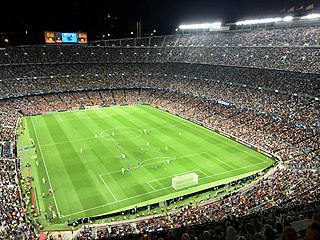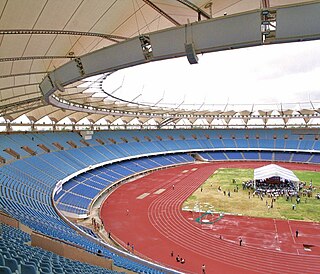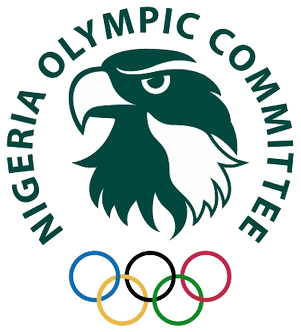
The Commonwealth Games is a quadrennial international multi-sport event among athletes from the Commonwealth of Nations, which consists mostly, but not exclusively, of territories of the former British Empire. The event was first held in 1930 as the British Empire Games and, with the exception of 1942 and 1946, has successively run every four years since. The event was called the British Empire Games from 1930 to 1950, the British Empire and Commonwealth Games from 1954 to 1966, and the British Commonwealth Games from 1970 to 1974. The event removed the word British from its title for the 1978 Games and has maintained its current name ever since.

A National Olympic Committee (NOC) is a national constituent of the worldwide Olympic movement. Subject to the controls of the International Olympic Committee, NOCs are responsible for organizing their people's participation in the Olympic Games. They may nominate cities within their respective areas as candidates for future Olympic Games. NOCs also promote the development of athletes and the training of coaches and officials at a national level within their geographies.
Sport in Pakistan is a significant part of Pakistani culture. Cricket is the most popular sport in Pakistan. Football has also gained popularity in recent years, and is the second most popular sport in the country. Field hockey is the national sport, and was popular for several decades, with some of Pakistan's greatest sporting accomplishments having taken place in this sport, along with squash. Polo and traditional sports like kabaddi and other well-known games are also played.

The African Handball Confederation is the administrative and controlling body for African team handball. Founded on 15 January 1973 after the 2nd All-Africa Games in Lagos (Nigeria), it represents the national handball associations of Africa under the supervision of the International Handball Federation (IHF).

Sport in Europe tends to be highly organized with many sports having professional leagues. The origins of many of the world's most popular sports today lie in the codification of many traditional games, especially in the United Kingdom. However, a paradoxical feature of European sport is the extent to which local, regional and national variations continue to exist, and even in some instances to predominate.

Field hockey is a moderately popular sport in Australia. It's usually referred to as simply "hockey" and is played in winter, with a season typically starting in March and April. The national governing body, Hockey Australia has 162,176 registered players as of 2020, with a 48% to 52% split of male to female players. Australia is home to two of the best national hockey teams in the world, with both the men and the women having won the Olympics, Commonwealth Games and World Cup one or more times.

The International Handball Federation (IHF) is the administrative and controlling body for handball and beach handball. IHF is responsible for the organisation of handball's major international tournaments, notably the IHF World Men's Handball Championship, which commenced in 1938, and the IHF World Women's Handball Championship, which commenced in 1957.

The athletics competition at the 2010 Commonwealth Games was held in New Delhi, India between 6 and 14 October. The track and field events took place between 6–12 October at the Jawaharlal Nehru Stadium while the marathon contests were held on a street course running through the city on 14 October.
Sport is an important part of Greenlandic culture, as the population is generally quite active. The main traditional sport in Greenland is Arctic sports.
The 2010 Commonwealth Games, was a multi-sport event held in Delhi, India from 3 to 14 October 2010. It was the first time that India hosted the Commonwealth Games and the second time it was held in Asia after Kuala Lumpur, Malaysia in 1998. A total of 6,081 athletes from 71 Commonwealth Games Associations (CGAs) participated in this Games, competing in 272 events in 21 sports.

South Korea competed at the 2012 Summer Olympics in London, from July 27 to August 12, 2012. This was the nation's sixteenth appearance at the Olympics, having missed the 1980 Summer Olympics in Moscow because of its support for the United States boycott. The Korean Olympic Committee sent the nation's smallest delegation to the Games since 1992. A total of 248 athletes, 135 men and 113 women, competed in 22 sports.

Iceland competed at the 2012 Summer Olympics in London, from 27 July to 12 August 2012. The nation celebrated its centennial anniversary in the Olympics, having participated at every games since 1912, except for four occasions.

The Nigeria Olympic Committee (NOC) is the National Olympic Committee and National Paralympic Committee representing Nigeria, responsible for co-ordinating and supporting Nigerian competitors in the Olympic Games. It is also the body responsible for Nigeria's involvement at the Paralympic Games, Commonwealth Games, Youth Olympic Games and African Games.
The Cook Islands Handball Association (CIHA) is the governing body for the sport of handball and beach handball in the Cook Islands. CIHA is member of the Oceania Continent Handball Federation (OCHF), International Handball Federation (IHF) and the Commonwealth Handball Association (CHA).
The Chinese Handball Association (CHA) is the governing body of handball and beach handball in the People's Republic of China. CHA is affiliated to the International Handball Federation and Asian Handball Federation. Founded in 1979, CHA is also affiliated to the Chinese Olympic Committee, East Asian Handball Federation. It is based in Beijing.

Weightlifting at the 2018 Commonwealth Games was held in the Gold Coast from April 5 to 9. The Weightlifting competition was held at the Carrara Sports and Leisure Centre. A total of eight men's and eight women's events were held.
Gymnastics competitions at the 2018 Commonwealth Games in the Gold Coast, Australia, were held from April 5 to 9, 2018 (artistic) and 11 to 13 (rhythmic) at the Coomera Indoor Sports Centre. A total of 14 artistic gymnastics events were held, along with six rhythmic gymnastics events.
During the Parade of Nations at the 2018 Commonwealth Games opening ceremony, held on 4 April 2018, 71 athletes bearing the flags of their respective nations led their national delegations as they paraded into Carrara Stadium in the host city of Gold Coast, Australia.

The North America and the Caribbean Handball Confederation (NACHC) is the governing body of the Olympic sport of handball and beach handball in North America and the Caribbean. It is affiliated to the International Handball Federation (IHF).

Judo competitions at the 2022 Commonwealth Games in Birmingham, England, were held from 1 to 3 August 2022. After the 2016 Summer Olympics in Rio de Janeiro and the 2020 Summer Olympics in Tokyo, This was the fifth time the sport has been on the program, since it was introduced as a demonstration sport in 1986, and made official at the next edition in 1990. Its second appearance within England specifically, spread across fourteen weight categories. Unlike other international competitions where each country can only enter one athlete per weight. Each participating country can enter up to 2 participants per weight. The sport will give two bronze medals, one for the winner from repechage and another for the athlete who won the third place event.














